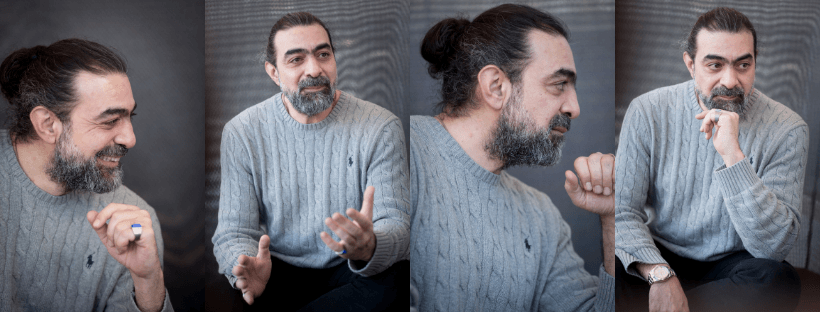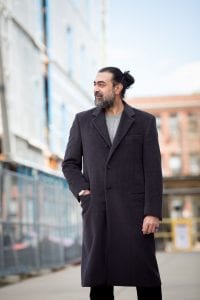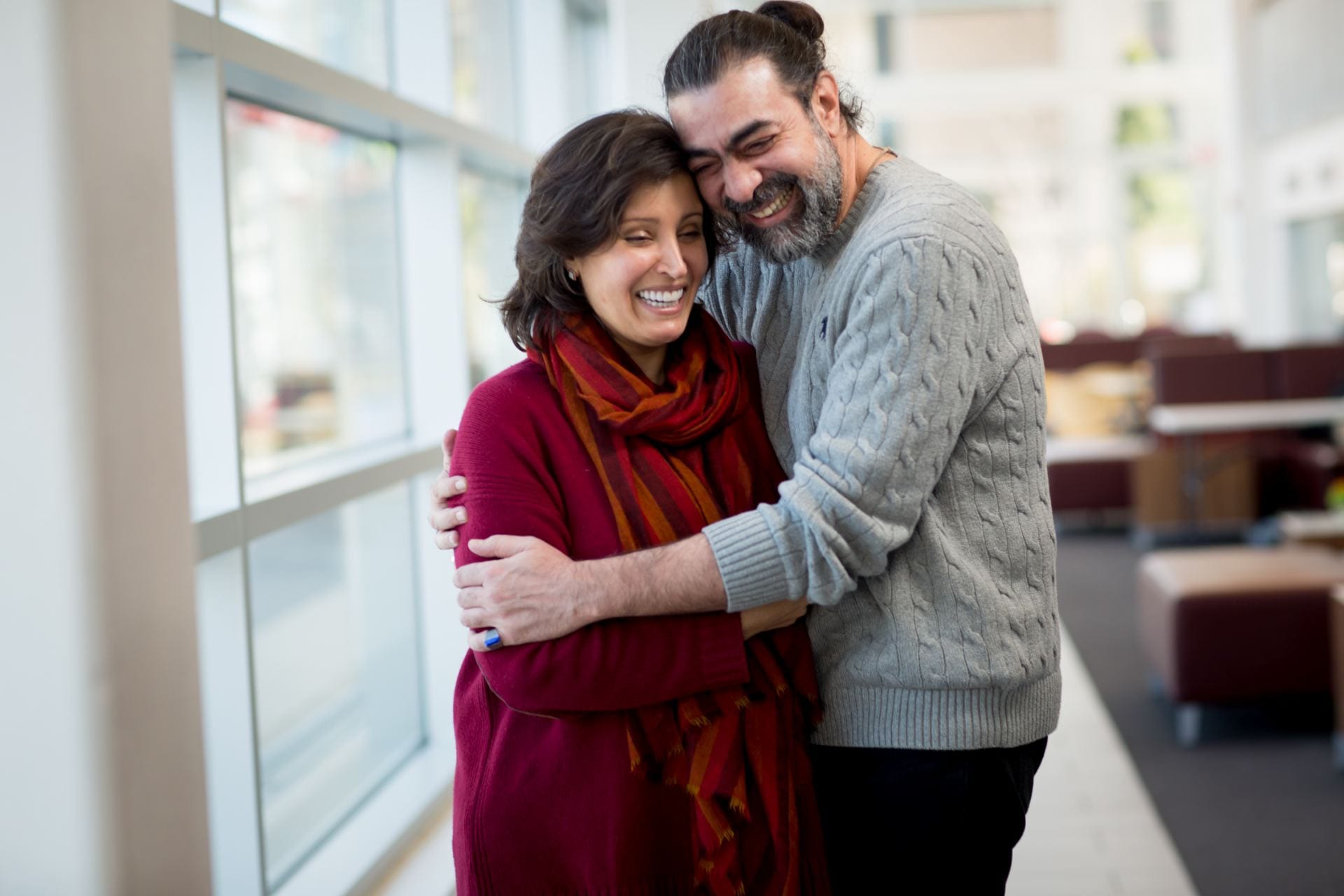By Kristen Walsh
Photos by Kathleen Dooher

ON THE APRIL DAY that Faisal Al Shawaf, AEC ’94, BCS ’95, Hon. ’18, visits the Wentworth campus, the wind is cold and brisk—a stark contrast to the sweltering desert climate in his homeland of Riyadh, Saudi Arabia. He and his wife, Nourah, are surrounded by a group of Middle Eastern students, a majority of whom are women. His message to the group is simple.
“Always try to better yourself; take your time; educate yourself,” says Faisal, president of Saudconsult. “There are so many doors opening in Saudi that it is more than I can count.”
When asked how Faisal’s company plays a role in advancing professional women, it’s Nourah who jumps in.
“Can I brag for a minute?” she asks. “Saudconsult is one of the few engineering companies in the country with a section for Saudi women.”
As president of Saudconsult—a family business and the oldest engineering and architectural firm in the country—Faisal talks about how proud he is of the company’s female employees. He communicates regularly with all of his personnel and employs an open-door policy.
 “If the people you lead feel that you know what they are going through and that you support them, they will work hard and give you everything,” Faisal says of the 100-plus emails he receives in a day. “I also lead by example. If employees see how you conduct yourself, they will follow.”
“If the people you lead feel that you know what they are going through and that you support them, they will work hard and give you everything,” Faisal says of the 100-plus emails he receives in a day. “I also lead by example. If employees see how you conduct yourself, they will follow.”
Faisal developed his management skills over time, noticing what he liked and disliked about the managers he worked for. His first Wentworth co-op was at Saudconsult (at the time run by his father, Tarek M.A. Al Shawaf); his second at a construction company in Aspen, Colorado. After graduating he went to work full time at his father’s firm—starting at the bottom. “I was a site supervisor for a couple years then I got promoted to engineer, resident engineer, project manager, vice president, and ultimately president. I had to work my way up.”
His days now are focused mostly on human resources management for the firm’s approximately 2,000 employees recruited from around the world. But he admits that he misses hands-on project work.
“On site you could see discrepancies in the design and would have to be very quick to solve problems when there was a clash between the mechanical and the structural,” Faisal says. “It’s magical being on site because you see things being built right in front of your eyes.”
The fact that he likes to work with his hands is what “accidentally” brought Faisal to Wentworth in the first place. During a meeting at Tufts University when he was 19, the dean of engineering recommended that Faisal attend Wentworth first.
“I told the dean that I like working with my hands to construct things so he told me to complete an associate degree in building construction science at Wentworth and then return to the Tufts civil engineering program,” Faisal recalls. “I went to Wentworth, did the two years, loved the campus and the professors, and didn’t want to leave.”
Faisal didn’t leave; instead he went on to complete a bachelor’s degree in building construction technology at Wentworth.

Faisal and Nourah
Changing Demographics
It is evident that Faisal stills holds that same passion for his alma mater when he returns to campus for the student meet-and-greet in April. He is particularly interested in the ways that connections among students, faculty, and alumni will provide international bridges that can positively impact people, communities, and countries.
As the group of Wentworth students awaits final words from Faisal, he reflects again on the female majority: demonstrative of how global connections with colleges and universities have helped break down barriers and implement changes in numerous countries.
Earlier in the year, a group of Wentworth senior officials traveled to the Middle East, where many successful alumni are rooted. The itinerary included a dinner of traditional faire with 23 alumni and influential community members at Faisal’s home. He says he “didn’t think twice” about hosting. A believer in the power of connections, Faisal also arranged for the senior team to meet with officials at King Saud University in Riyadh to explore options for information sharing and educational programs that would help further the economy and meet job market demands.
“There are opportunities to work with private and public universities on faculty and student exchanges,” Faisal says. “The willingness of both sides to work together was quite evident and there was a lot of positive response.”
And to the students he met at Wentworth, the same rules apply for leveraging connections. “I told them if they need any help to feel free to call me,” Faisal says. And he means it. “I also encouraged them to build friendships with students not
only from Saudi but from other countries and other universities. They want to keep these bridges because personal connections are necessary to create positive change and to make good things happen.”

